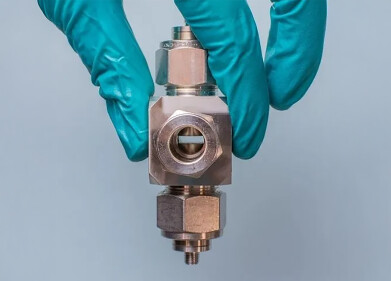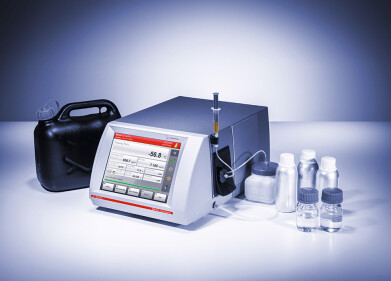Analytical Instrumentation
How is Mass Spectrometry Used in Petrochemical Analysis?
Oct 27 2021
Fast, accurate and affordable, mass spectrometry (MS) is an invaluable tool for petrochemical analysis. Highly sensitive instruments allow analysts to identify and quantify individual chemical components found in petroleum samples, with data used to optimise the production process, monitor emissions and improve the quality of the finished product.
“Hydrocarbon processing plants around the world use process mass spectrometers to optimise a diverse range of chemical production processes as well as to monitor fugitive emissions, reads the Thermo Fisher Scientific website. “Process mass spectrometers offer complex sample stream analysis in seconds, automatic calibration, minimal maintenance, no required carrier gases required and few utilities.”
Below, we take a closer look at the role of MS for petrochemical analysis.
Defining mass spectrometry
Mass spectrometry is an analytical technique used across a wide range of industries, including the petrochemicals sector. Spectrometers are used to measure the mass-to-charge ratio of ions, with data used to isolate, identify and measure individual chemical substances.
Characterising complex mixtures
Natural fuels and feedstocks used in the petrochemicals industry are incredibly complex. Chemical composition can vary enormously depending on the geological origins of the mixture, as well as factors such as extraction method, processing techniques and storage and transport.
MS allows petrochemicals scientists to identify and quantify thousands of unique chemical compounds in a single sample. The art of profiling petroleum using advanced techniques like MS is known as petroleomics and has become an invaluable tool for the industry.
Combining MS with other methods
The capabilities of MS are continually advancing, with scientists combining the technique with other methods to enrich data.
-
Ion mobility spectrometry (IMS-MS)
Coupling MS with ion mobility spectrometry (IMS-MS) is one of the latest success stories, with the multidimensional post-ionisation separation technique ideal for analysing complex samples.
“IMS-MS offers untargeted analysis, including ion-specific conformational data derived as collisional cross section (CCS) values,” reads an abstract from a recent report published in the journal Energy Fuels. “Collectively, this work demonstrates how rapid untargeted IMS-MS analysis and the proposed data processing workflow can be used to provide confident compositional characterization of hydrocarbon-containing substances.”
-
High-Resolution FT-ICR
High-Resolution FT-ICR (FTICR) is another technique that’s reimagined the capabilities of mass spectrometry. Using a process called field desorption, FTICR instruments ionise nonpolar petroleum components and allow researchers to identify substances that may not be revealed during electrospray ionisation (ESI) analysis.
Want to know more about the latest developments in petroleum analysis? Writing on behalf of Scion Instruments, author Ashleigh Mellor introduces the company's arsenal of new technologies in 'Analysis of Sulphur Compounds in Various Liquefied Petroleum Gases'.
Digital Edition
PIN 25.5 Oct/Nov 2024
November 2024
Analytical Instrumentation - Picturing Viscosity – How Can a Viscometer or a Rheometer Benefit You? - Sustainable Grease Formulations: Evaluating Key Performance Parameters and Testing Method...
View all digital editions
Events
Nov 27 2024 Istanbul, Turkey
Biogas Convention & Trade Fair 2024
Nov 27 2024 Hanover, Germany
Dec 03 2024 Dusseldorf, Germany
Dec 08 2024 Anaheim, CA, USA
Turkey & Black Sea Oil and Gas
Dec 11 2024 Istanbul, Turkey



















